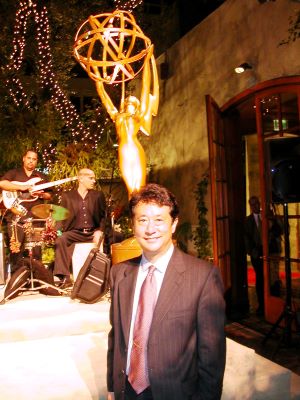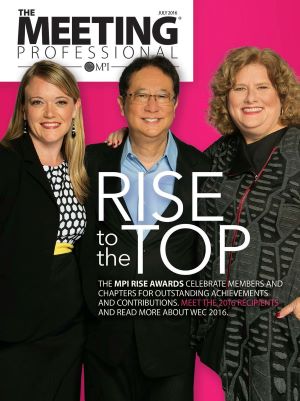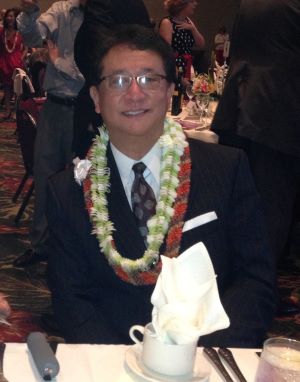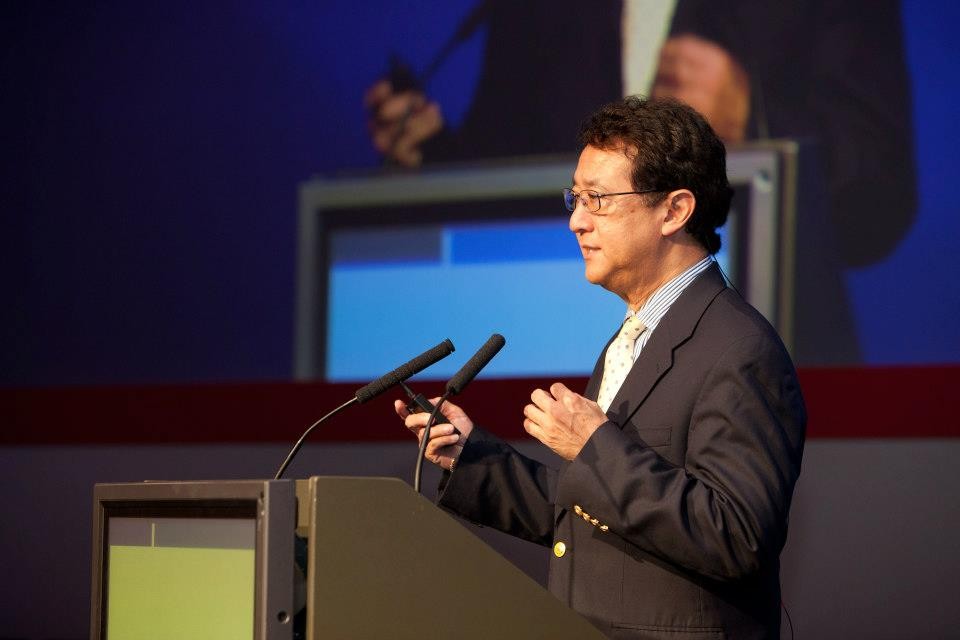
Veteran meetings and events industry leader Kevin Iwamoto, who most recently held the position of chief customer officer and head of enterprise for meetings technology company Bizly, announced his retirement in late March.
Iwamoto, who worked in the business travel and events industry for 35 years, joined Bizly in 2019 as chief strategy officer. Previously to this, he held executive roles at meetings and events technology companies Lanyon, Active Network and StarCite. Before that he was a global corporate travel buyer at Hewlett-Packard (HP), Disney Worldwide Services and Northwest Airlines.
At HP, he is credited with prototyping the first online car rental auction and negotiated the first enterprise airline alliance agreement with Star Alliance.
[Read More Meetings Industry Profiles]
Over a career of industry association leadership and advocacy, he served as president and CEO of National Business Travel Association—now Global Business Travel Association—being the first and only Asian American to hold that position, leading that association through the tumult following 9/11 and playing an instrumental role in creating the Strategic Meetings Management (SMM) designation. He was named an Industry Icon by GBTA, its highest honor, in 2009.
Giving back to the meetings and events industry, Iwamoto is a dedicated DEI advocate and also personally funded industry scholarships, including a perpetual scholarship, for the Travel Industry Management School at the University of Hawai’i.
Meetings Today checked in with Iwamoto, who was named one of its 20 industry Meetings Trendsetters in 2022, to get his perspectives on his career in the meetings industry and where he thinks it is headed in the future.
[Read Our Meetings Trendsetters Write-Up of Kevin: 2022 Meetings Trendsetters]
Tyler Davidson: Why did you get into this industry to begin with?

Kevin Iwamoto: It started when I was about to leave HP. I was all set and prepared to accept a VP of travel role for a large national bank when the CEO of StarCite asked me to meet with him to discuss a new executive role he created and wanted to propose to me in person. I felt I owed him and StarCite that courtesy because they had been a great supplier partner to HP and me.
He did a very skillful pitch and had obviously done his research on me, and by the time we ended the meeting I went from a “no-way” to an “open-to-it” mindset. He literally offered me a position a few days later, and after much thought and deliberation, I took a leap of faith and accepted the job.
That decision literally changed my career trajectory from corporate business travel management to this exciting world of meetings and events. Looking back at that decision, it was one of the best decisions I have ever made in my career.
[Related: Kevin Iwamoto: My Journey Advocating for DEI and Belonging]
Tyler Davidson: Why did you stick with this industry for so long?
Kevin Iwamoto: Both business travel and meetings and events are very attractive and seductive industries to be a part of, largely because of the availability of numerous job opportunities as a buyer or supplier and the ability to move up into the executive ranks more quickly than standard corporate jobs where advancement and financial opportunities are much slower.
But mostly it's the people of this industry and the wonderful relationships that you develop over the course of many years. You are welcomed into many communities within the industry and get exposed to many opportunities for growth and many professional relationships transition into personal friendships that are long lasting. The combination of all of it makes it very hard to leave.
[Related: New Asian Pacific Islander Meetings Industry Advocacy Group Launches]
Tyler Davidson: What positive aspects of this industry have you seen develop since joining it?

Kevin Iwamoto: Being an executive in technology, the first thing that comes to mind is the rapid advancement of technology that has allowed for the redefinition of workflows and jobs in general.
It started with manual redundancies converting into automated solutions, but the rapid advancement of tech oftentimes leads to changes that sometimes results in the cart leading the horse. But as event professionals adapt and get used to more rapid change management in the industry, I foresee a time especially with the introduction of artificial intelligence (AI), accelerating technological proficiencies.
The industry is at an important crossroads—how to manage the human need for in-person interactions while using technology to make the logistical support more efficient while enhancing production values.
Also, the new generations entering our industry are not waiting for the industry to make much needed changes in terms of DEI and elevating more women and people of color to be part of the executive suite, as well as driving fundamental changes in the way we meet, eat and consume products while reducing carbon emissions, reducing global warming and making sustainability a core tenet of event planning.
[Related Podcast: Bizly's Kevin Iwamoto on API Advocacy, Meetings Tech]
Tyler Davidson: What remains to be improved in this industry by the next generation of its leaders?

Kevin Iwamoto: The first thing that I’ve noticed is the ease in which they use social media and the internet to get things done and research. They embrace technology and have made it a part of their personal and professional lives. They are more open to fresh ideas and are more idealistic.
What I feel can be improved is the impatience that I have witnessed. The quick job hopping without making a reasonable time investment and commitment to stick around and make changes for improvement vs. leaving and looking for greener pastures.
There is no perfect job or company; you have to make a conscious commitment to stay and be an agent of change. The same rules apply for networking and relationship building in this industry; you have to make an investment in people and the quality of your network. That requires a commitment of time and the fundamental understanding that the network you build is for the long term and is not short-term based.
Tyler Davidson: What is your advice for someone just starting out in the meetings/events industry?
Kevin Iwamoto: Don't be in a rush to get somewhere; the best and most enduring homes have a solid foundation. Your job, your network and professional relationships are from the same blueprint. Also be cognizant of building your personal brand: Who are you when you show up in person and on social media?
Your personal brand starts with self-awareness, authenticity, integrity and consistency. One of my favorite ways to describe what a personal brand is comes from Jeff Bezos, CEO of Amazon: “Your personal brand is what people say about you when you’re not in the room.”
The deeper meaning of that is, you already have a personal brand whether you know it or not. It's better if you know what it is and nurture or self-correct it while you build it vs. stumbling into it and potentially damaging your career reputation and integrity. Think of the long term vs. the short term when it comes to your career and life in general.
Read Next:DEI and the Hospitality Are Dual Passions of Teneo's Gary Murakami]







